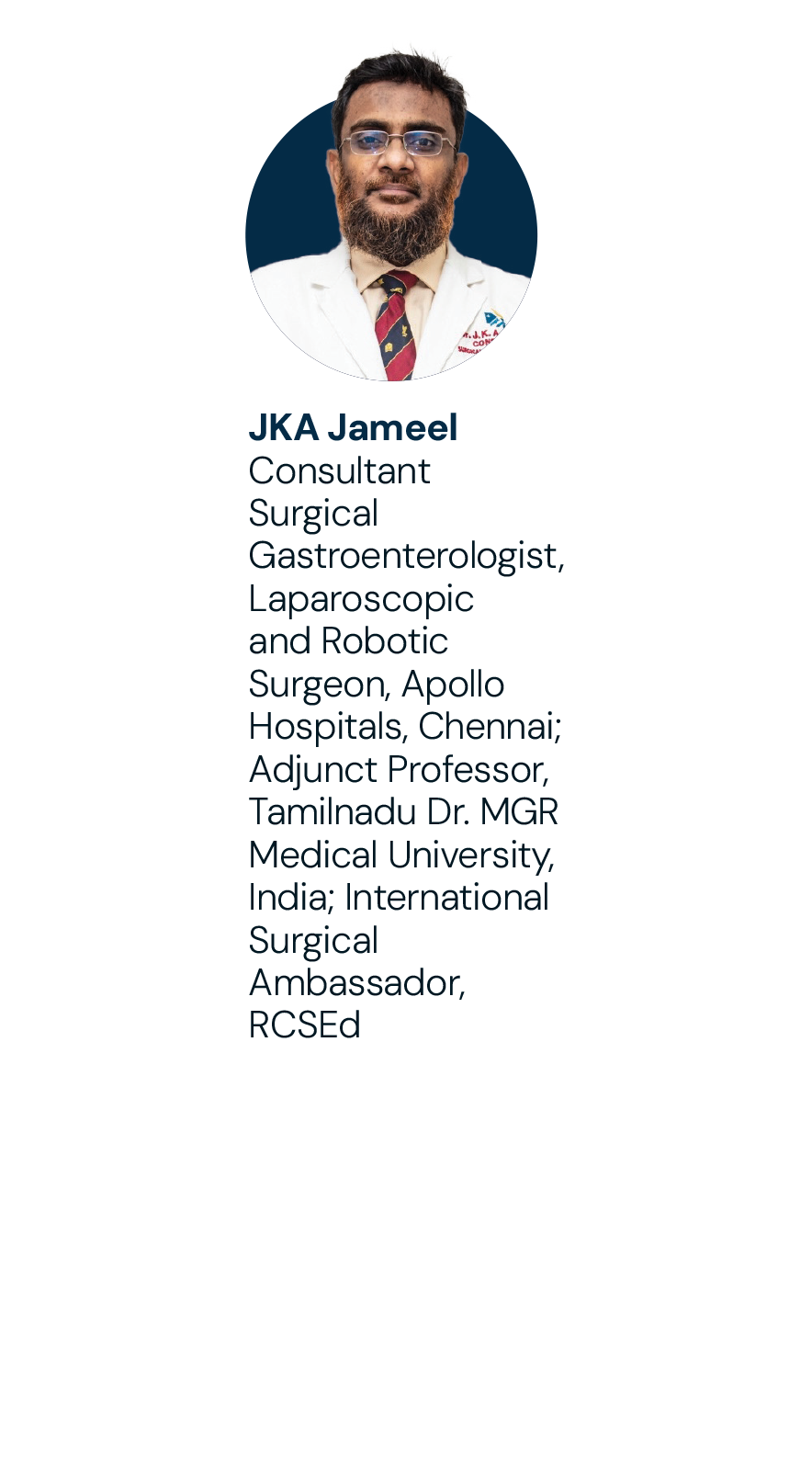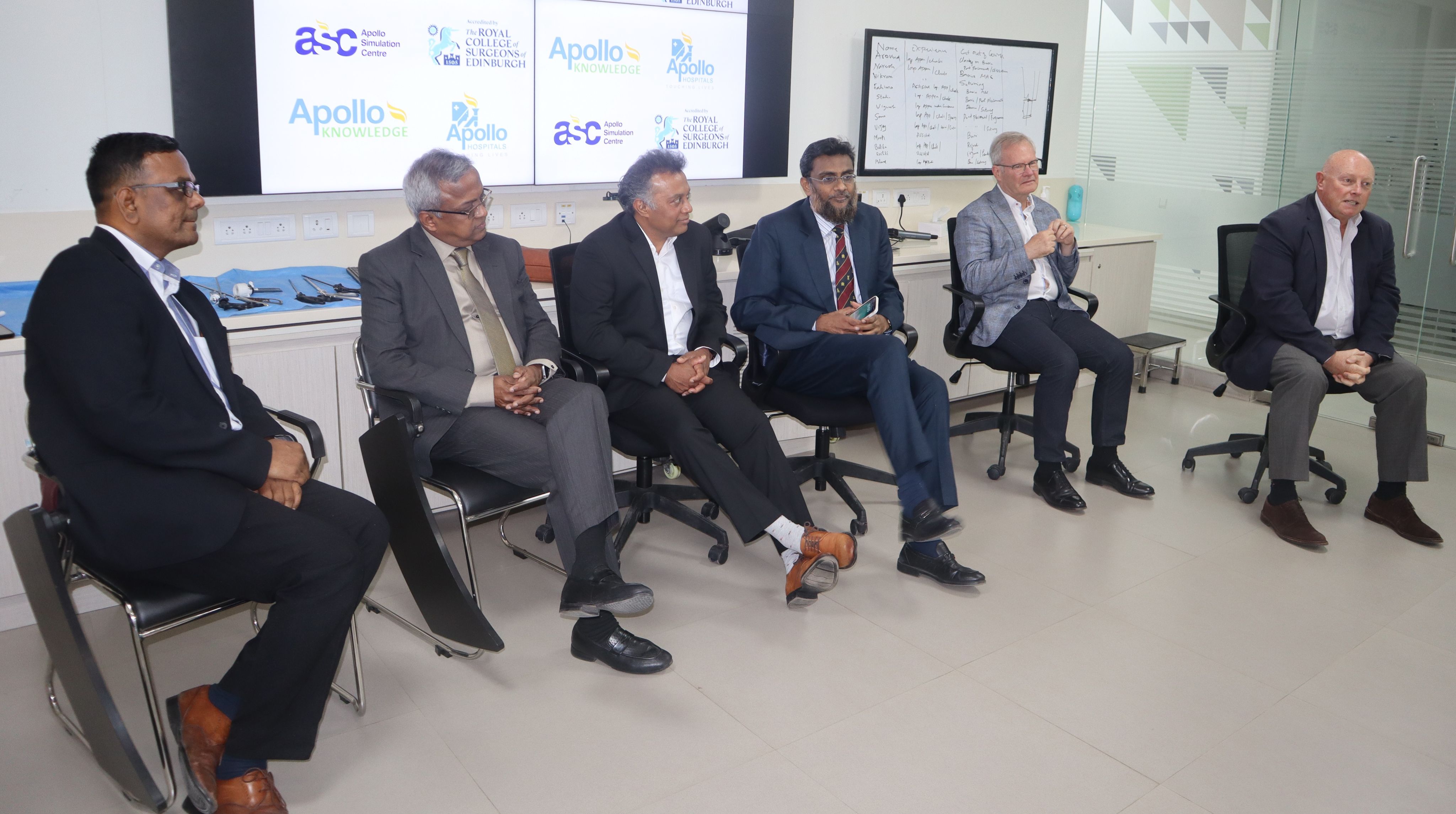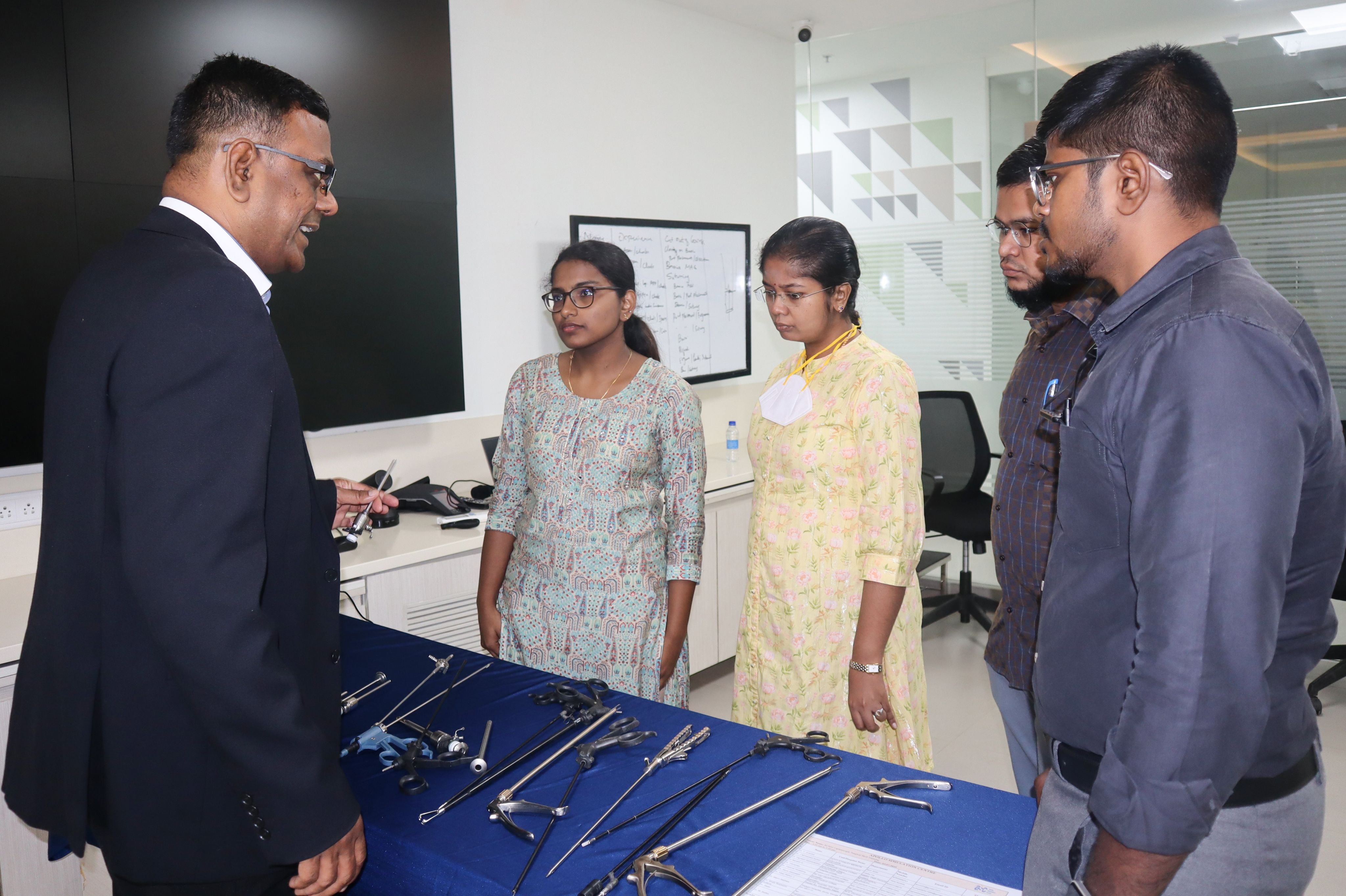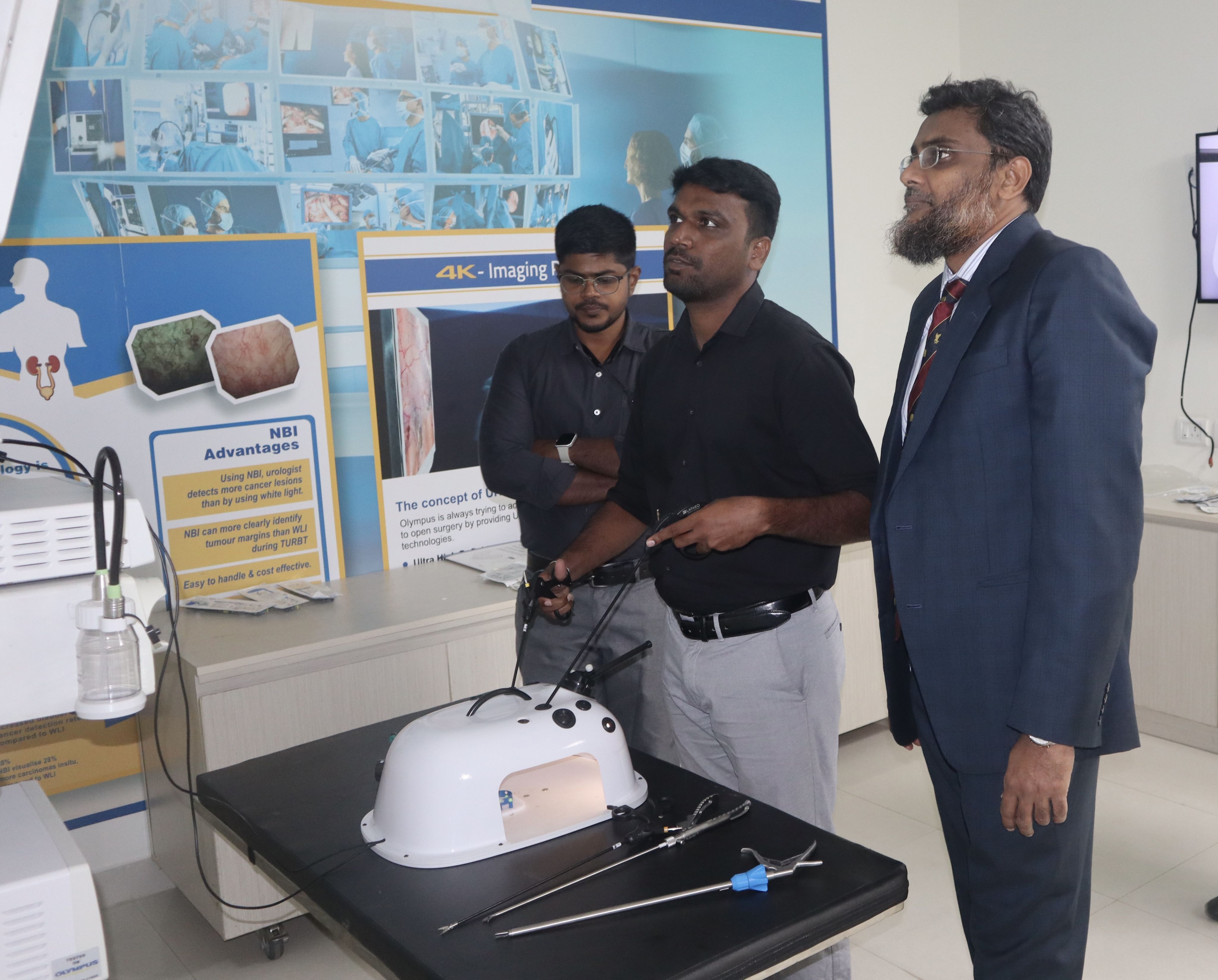A landmark in surgical education
RCSEd in collaboration with Apollo Hospitals conducts the very first accredited Laparoscopic Surgical Skills Course in Chennai, India
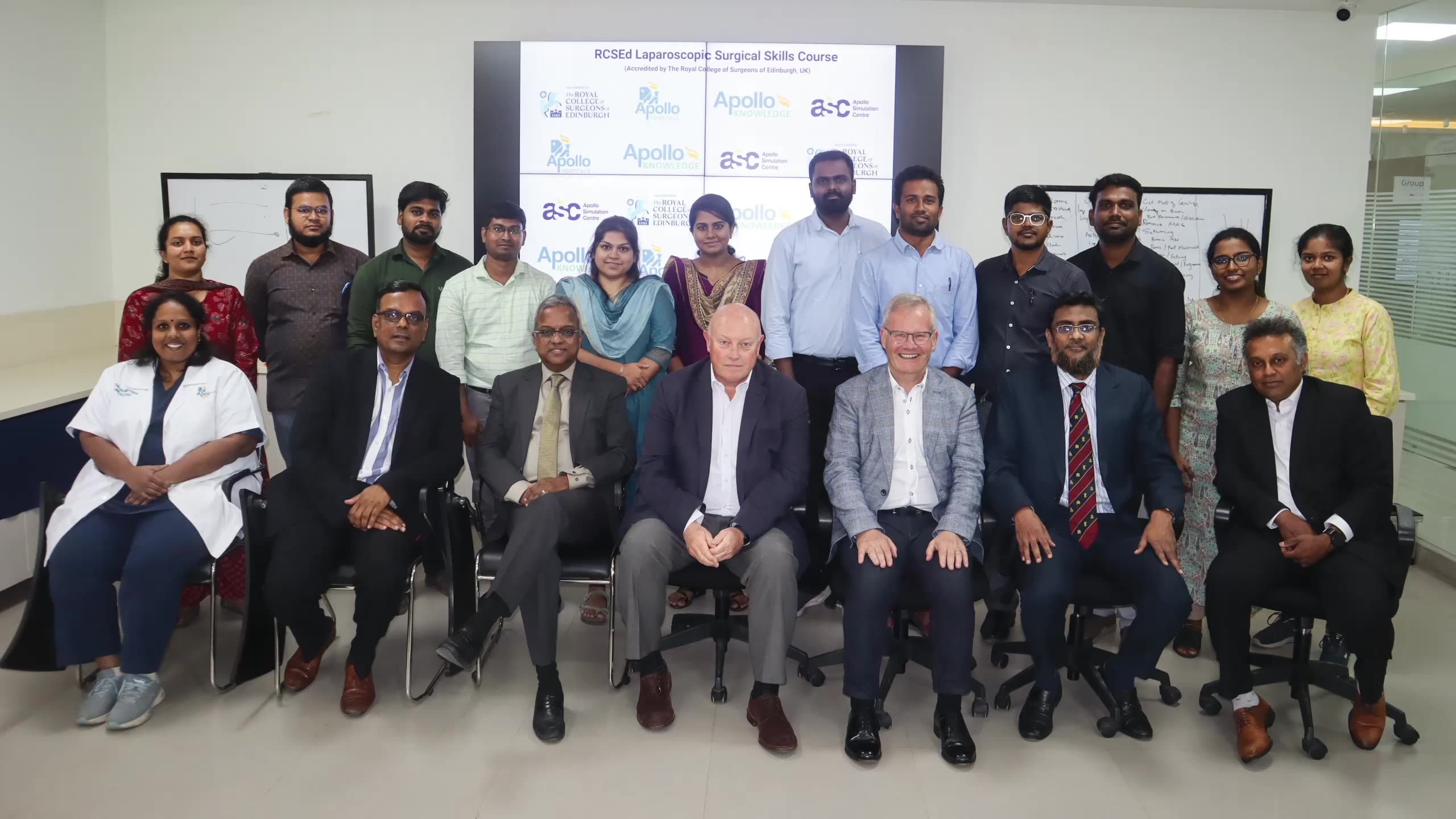
The first RCSEd-accredited Laparoscopic Surgical Skills Course in India was conducted at Apollo Simulation Centre, Chennai, India, marking a significant milestone in surgical education and collaborative training initiatives. This intensive, one-day course, organised jointly by RCSEd and Apollo Hospitals, was designed to provide young surgeons with structured, hands-on training in essential laparoscopic techniques.
As the Convener and Faculty Lead, I had the privilege of curating and leading this course. I am so grateful to the excellent support from my co-faculty: Chelliah Selvasekar, RCSEd Council Member and Consultant Colorectal Surgeon at the Christie Hospital, Manchester, and Karthik Maruthachalam, Consultant Surgeon at Dumfries and Galloway Royal Infirmary. It was also an honour to have Tim Graham, Vice-President of RCSEd, and Robin Paton, Honorary Secretary of RCSEd, visit us during the course and interact with the candidates.
Twelve candidates were selected for this prestigious course through a rigorous CV-based screening process, ensuring that only genuinely motivated and suitably qualified candidates were chosen. All of them displayed strong commitment to enhancing their minimally invasive surgical skills. The course offered a balanced mix of theoretical and practical training, including focused lectures, masterclass surgical videos, demonstrations as well as handling of laparoscopic instruments, energy devices and staplers. Candidates also had extensive hands-on practice sessions on intracorporeal suturing, hand-sewn/stapled bowel anastomosis and skills development modules on simulation models. A key strength of the course was the high level of faculty-to-candidate interaction, which encouraged active learning, personalised feedback and real-time mentoring.
From a personal standpoint, having completed both basic and higher surgical training in Yorkshire, I was fortunate to gain strong exposure to laparoscopic surgery quite early in my career. As a consultant surgeon in the UK, my commitment to laparoscopy continued and I regularly trained my core and higher surgical trainees in laparoscopic procedures. However, after returning to India, I observed a stark difference. Many young surgical trainees, though highly motivated, lacked access to structured laparoscopic training during their formative postgraduate years. This significant training gap needed to be addressed. Courses like these, held outside conventional postgraduate training programmes, play a vital part in bridging this gap and preparing the next generation of surgeons for modern surgical practice. I firmly believe that laparoscopic surgery must be taught alongside open surgery from the very beginning of postgraduate surgical education.
Feedback from all the candidates was overwhelmingly positive. They appreciated the structured format, depth of hands-on experience, and the quality of faculty input. Many shared that the course filled a crucial void in their training and gave them the confidence to take their laparoscopic skills to the next level.
I would like to thank M Muralidharan, Director of Medical Education, Apollo Hospitals, and Sai Krishna Vittal, RCSEd Council Member, for their guidance and encouragement. My heartfelt gratitude and thanks go to the management of Apollo Hospitals, whose wholehearted support helped bring this RCSEd-accredited course to Chennai. Apollo Hospitals has consistently demonstrated a deep commitment to the advancement of medical education and surgical training. With world-class infrastructure, an active simulation centre and a culture that fosters continuous learning, Apollo Hospitals continues to be at the forefront of nurturing surgical talent and innovation in India.
This course stands as a testament to what structured collaboration between international surgical colleges and premier Indian institutions can achieve. It is our hope that this will be the first of many such joint training initiatives to come, continuing to raise the bar in surgical education in the region.
Read more


